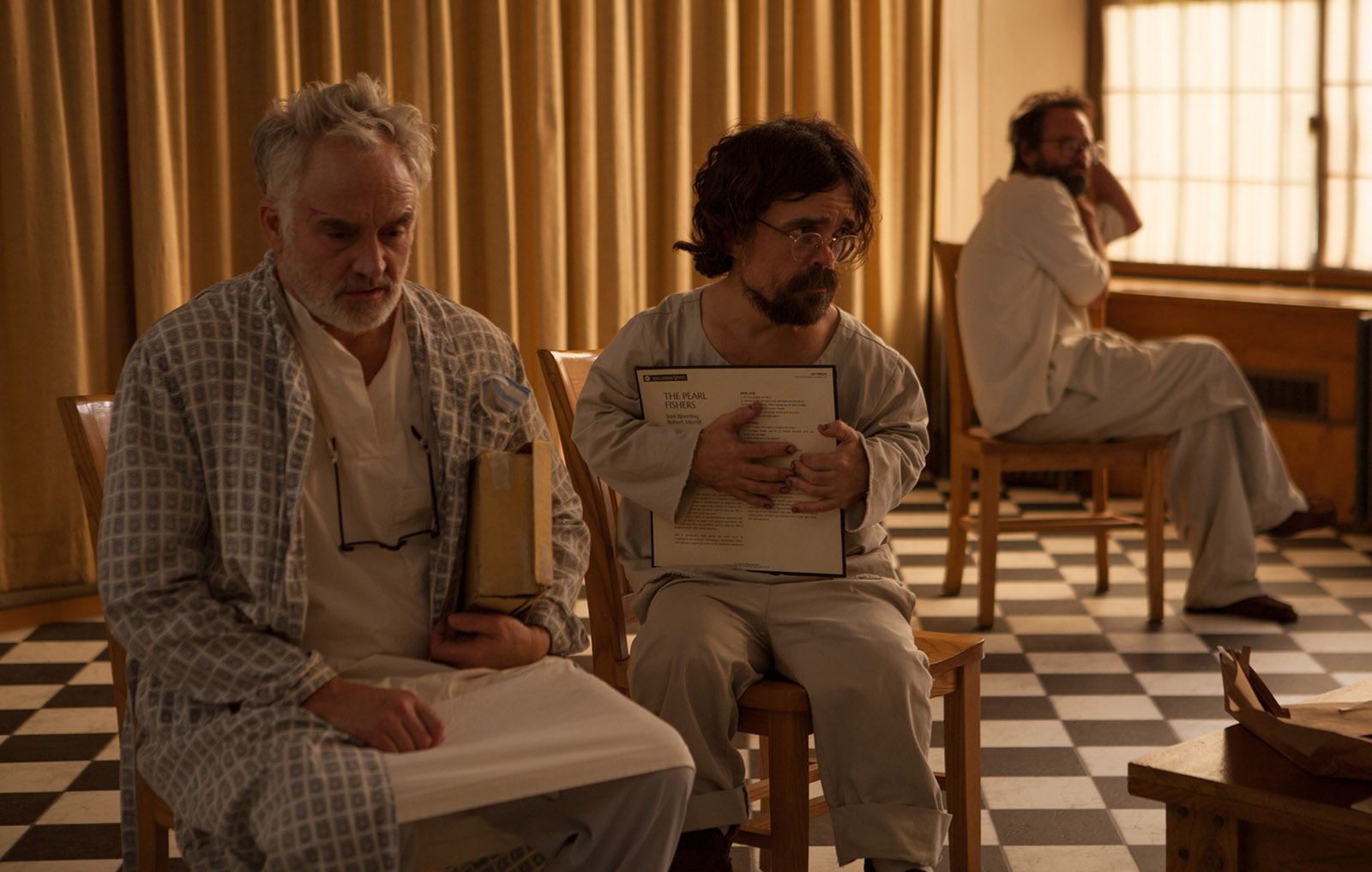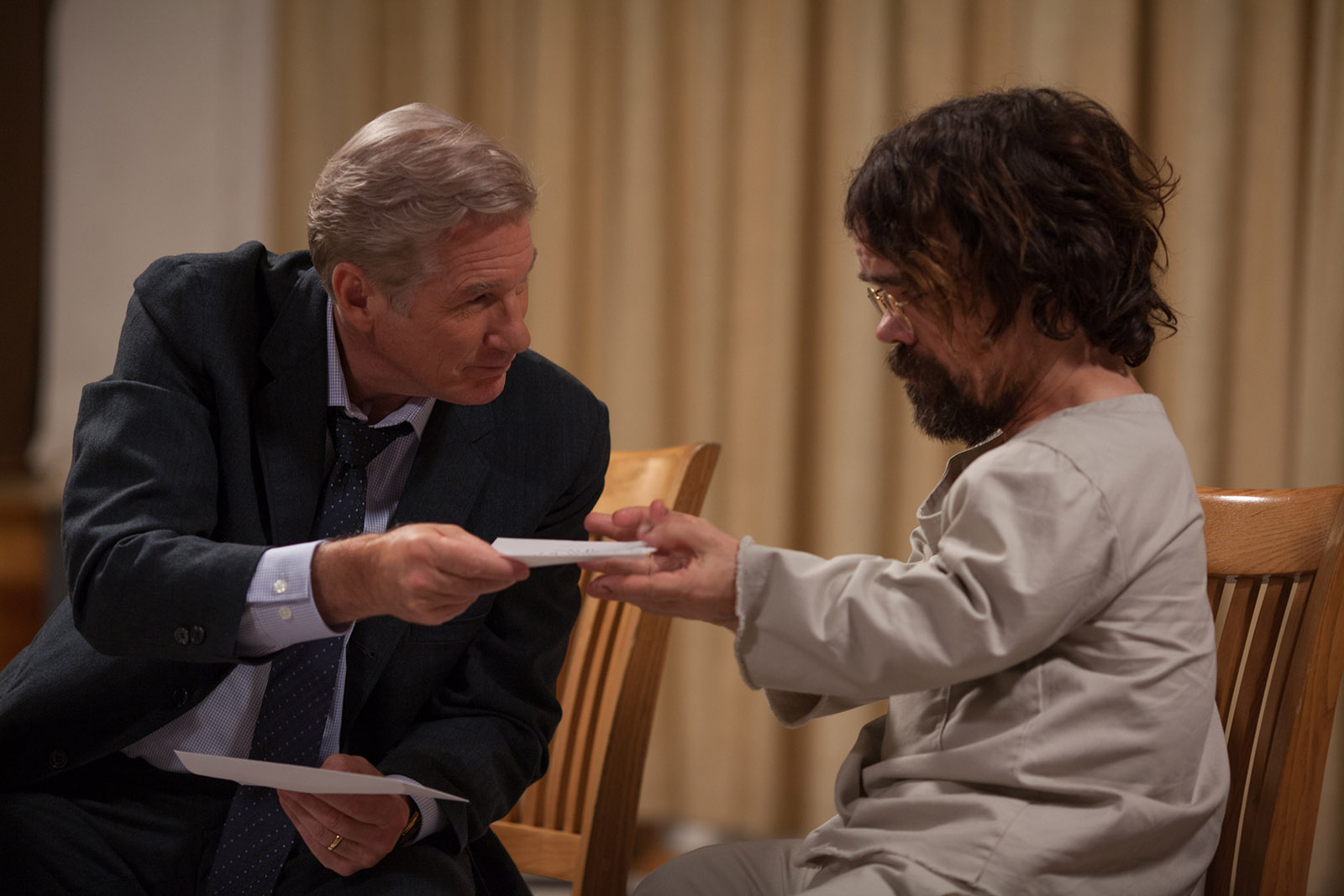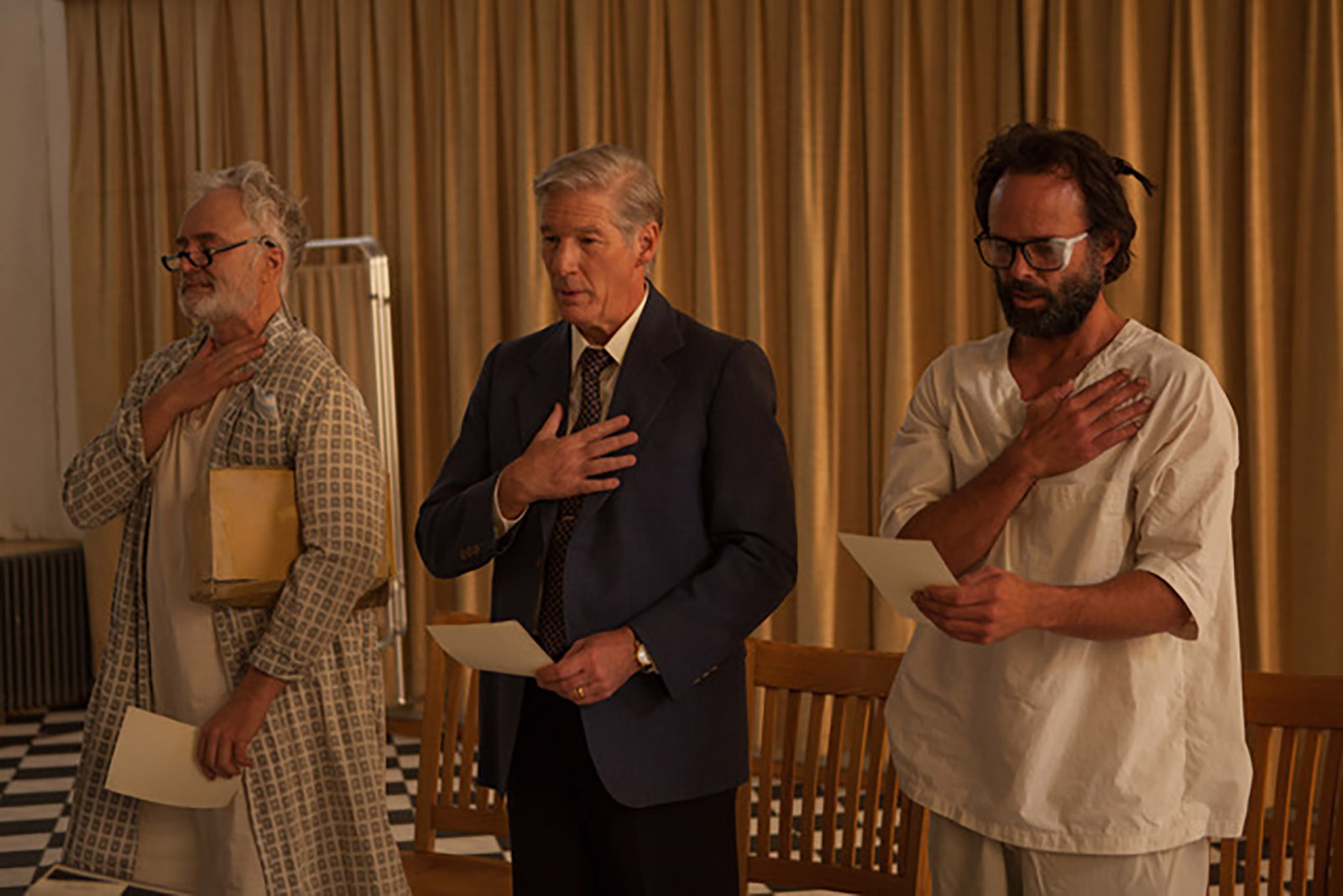One does not have to go that far back in cinema to find another film besides Jon Avnet’s newly released Three Christs that is based on medical case history. There is, for example, Penny Marshall’s Awakenings (1990), which finds its source in Oliver Sacks’s 1973 account of the application of L-dopa, a then-recently formulated medication, in the treatment of patients with irremediable encephalitis.
Sacks’s original narrative, in the book called Awakenings, is a significant literary achievement, and one that brought new awareness to the role that humanism, as a discipline, could play in the study of neurology. The book was so good, so memorable, so powerfully moving, that it helped spawn an entire literary career for Sacks, who went on to write such classics as Migraine, The Man Who Mistook His Wife For a Hat, Gratitude, and other excellent popular accounts of neurology, general medicine, his own life, and so on.
Unfortunately, at least for this critic, Awakenings, the film, was a big bust. Not because, for example, Robert DeNiro was bad in it. On the contrary, as Sacks himself noted in his essay “Awakenings on Stage and Screen,” DeNiro’s capacity for physical duplication of neurological symptoms was spookily accurate. Rather, Awakenings the film was bad because the second Hollywood got ahold of the story, a whole apparatus of ludicrously melodramatic material was grafted onto Sacks’s gentle and beautiful account—all of this additional storytelling simulated, overwrought, and hard to enjoy. The result was, alas, a monstrosity of a thing.
I approached Jon Avnet’s Three Christs—which is based upon Dr. Milton Rokeach’s spellbinding account (titled The Three Christs of Ypsilanti) of a “humanist” psychological experiment in Ypsilanti, Michigan, in which the author decided to practice group therapy with three chronically psychotic, schizophrenic men who all insisted they were Jesus Christ himself—with an anxiety born of prior disappointment. Since many are the abject pieces of cinema that are “based on a true account,” as we are told here at the outset, there is good reason to worry.
Judged as an example of the same, a story that awkwardly grafts dramatic material onto a wonderfully supple, sad, and powerful source, Three Christs proves the accuracy of prejudice. Right away, in the first act, there is the dismal backstory in which Dr. Allen Stone (performed by an excellently elderly Richard Gere) comes to this state hospital in Michigan for some merely plot-oriented reason, a state hospital with implausible interior offices, to conduct his implausible experiment, with implausible resistance from the evil forces of the mental health apparatus, while ignoring his implausibly young children and wife at home. Also: there is the fragile young bombshell assistant who couldn’t stop her own schizophrenic brother from committing suicide, and the African-American orderly who can’t possibly rise above his position, but who is the stalwart moral center of the film. I could go on, but the point is made: there is a superabundance of extraneous story soldered on for the sake of film entertainment.
The viewer could be forgiven, in the first half-hour, for believing that one had made a grand mistake by taking on Three Christs. But if you left the film during the first act, you would miss some of what is rather splendid and moving about it—in particular, the wonderful performances of the three schizophrenic characters, Joseph, Leon, and Clyde, portrayed by Peter Dinklage, Walton Goggins, and Bradley Whitford. Each performer, in his way, brings something especially lucid to the enactment of the dread illness. Whitford, playing the lowest functioning person in the story, inhabits Clyde’s delusional space, his symbolic grasping of the world, with great sympathy; Dinklage, ever masterful and wily, manages the sometimes inexplicable charm and wit of the formidably ill; and Goggins, almost painfully at times, truly inhabits the provocations and anti-social tendencies of the most afflicted.
In appearance, Goggins is faintly reminiscent of David Berman, the late poet and songwriter, with his beard and broken glasses, and often achieves something like Berman’s outsider-art genius in Avnet’s rendering. It is worth also mentioning a tremendous setpiece that closely adheres to a story in Rokeach’s book, in which the men all sing “America the Beautiful” together, having selected it themselves for this purpose. This sequence is lovely, very sad, and, in its way, successfully patriotic, as almost nothing is these days.
This middle section of the film holds fast most closely to Rokeach’s own account of his experiment, at times even including actual remarks by the original participants, and in this way, it gets very near to what is important about this narrative: a completely improbable experiment in humanist therapy (perhaps under the influence of the work of the humanistic psychologist Carl Rogers, which would have been roughly contemporaneous, and which eventually gave us the outlines of the now widespread practice of psychotherapy) in the midst of the institutional period of American mental health treatment. Considered from our vantage point, some fifty or more years later, Rokeach’s experiment may seem questionable, pointless, thoughtful, idealistic. But in the environment in which it was first pursued, it was fantastical enough to seem revolutionary: you’re going to just let them talk?
Advertisement
When Avnet’s film takes the same approach, and just lets them talk, it is painful, noble, and beautiful, not least because of the great performances of the three schizophrenic characters, but also because of Gere’s dogged understatement, which is lovely and appropriate. There comes a moment, about two thirds in, when Dinklage’s Joseph kisses Gere’s character, out of gratitude—a long, sweet kiss, and it’s not only beautiful because it is routine, and because it is Peter Dinklage kissing Richard Gere, but also because this moment sets up a theme that runs through the last act of the film, in which one wonders whether one or more of the men really is Jesus of Nazareth. What would it mean to be him, actually, in the woebegone present? How would the love of Christ, among such a doomed constituency, manifest itself?
The film closes with a great stretch of plot-oriented drudgery that I’m not going to rehearse here, including a suicide: more storytelling that could only come from a long-ago writers’ conference, perhaps in Los Angeles, that should never have been. None of this additional material is native to the source material, and all of it is stolidly performed by the actors in a way that, unfortunately, does not rescue the film as a whole.
That said, what is it that we want from a film like Jon Avnet’s Three Christs? For me, it is not to have a bit of a cry and think about how rough it must have been in the mental hospital. What we might want, instead, is the opportunity to think of people with schizophrenia or other psychotic illnesses as people. Real people, with real emotions, and genuine ideas about themselves and their lives. Arguably, there is no Other, in all contemporary film and literature, that is as firmly lodged in the category of Outsider as the contemporary schizophrenic. You know you are seeing a film that will deal with schizophrenics by virtue of a bundle of tired repetitions: electroconvulsive shock therapy, screaming in the corridors, people being sprayed with a hose in lieu of showering themselves, straitjackets, solitary confinement. All these signal that we have left the place of civilization entirely. But, in actual fact, civilization can and does contain their suffering, a suffering much more complex than one film can manage. And yet the film that contends with this does us all a real service.
One way we could begin is simply to tell the truth, as Richard Gere’s character recommends at one point in Three Christs (“Just tell the truth, keep it simple”)—by recognizing the common human aspiration in all our mentally ill people. They are our mothers, our sisters, our cousins, our brothers, our dads, our aunts and uncles. They are ourselves.
Avnet’s film, for all its blustering about the institutional period of mental health treatment (a subject on which, it seems to me, it is very frequently incorrect), is on its firmest footing when in its depiction it strives for accuracy about the ache and woe of mental illness, when it says what is true: that they are us.
Three Christs, directed by Jon Avnet, is on release from IFC Films from January 10. The Three Christs of Ypsilanti, by Milton Rokeach, with an introduction by Rick Moody, is published by New York Review Books.





